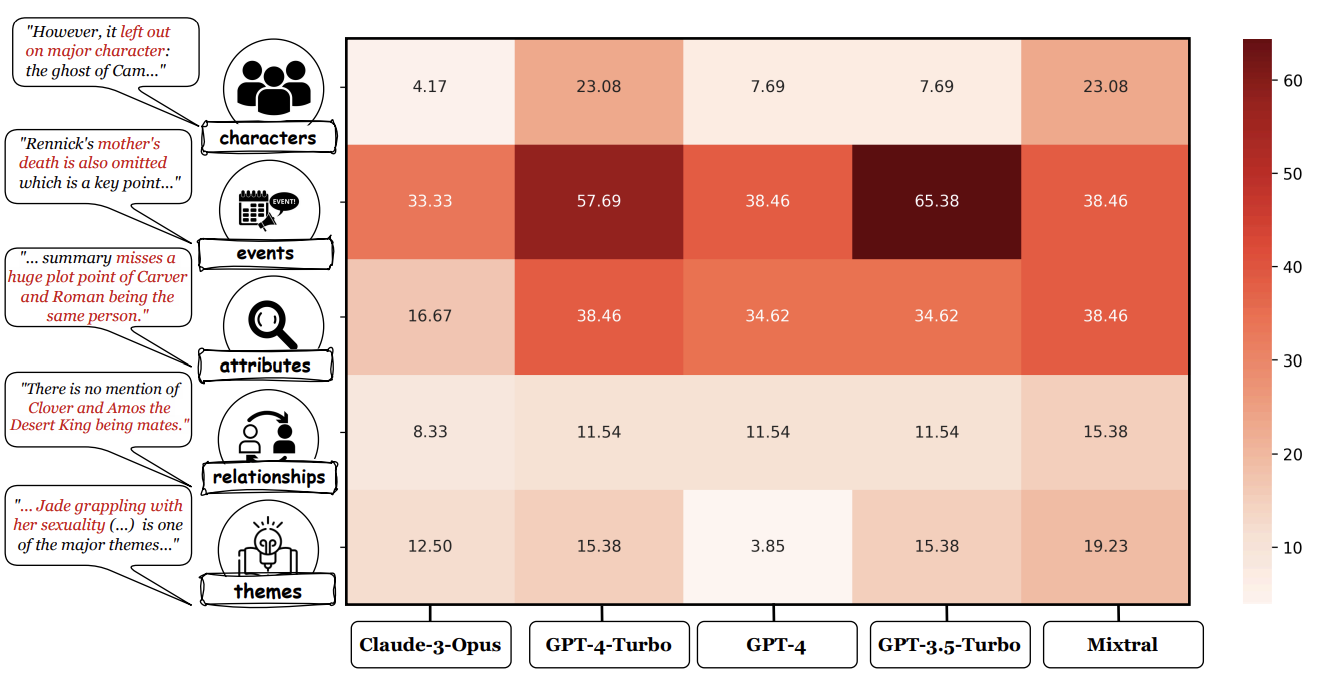
aifaq.wtf
"How do you know about all this AI stuff?"
I just read tweets, buddy.
Page 9 of 64

Nearly 70% of newsroom staffers from a variety of backgrounds and organizations surveyed in December say they’re using the technology for crafting social media posts, newsletters and headlines; translation and transcribing interviews; and story drafts, among other uses. One-fifth said they’d used generative AI for multimedia, including social graphics and videos.

An analysis of the annotations reveals that most unfaithful claims relate to events and character states, and they generally require indirect reasoning over the narrative to invalidate.
What kinds of things are AI tools especially bad at?

Something about calling an AI's work "well-done" feels far more anthropomorphic than it should.
While LLM-based auto-raters have proven reliable for factuality and coherence in other settings, we implement several LLM raters of faithfulness and find that none correlates strongly with human annotations, especially with regard to detecting unfaithful claims
Of course this needs a link to my favorite hallucination leaderboard. It's tough since of course it costs money to do this in a way that doesn't rely on LLMs to create and score the dataset. Which leads to...
Collecting human annotations on 26 books cost us $5.2K, demonstrating the difficulty of scaling our workflow to new domains and datasets.
$5k is is somehow cost prohibitive between UMass, Princeton, Adobe, and an AI institute? That... I don't know, seems like not very much money. I get the understanding that this is "best" done for pennies, but if someone had to cough up $5k each year to repeat this with newly-unknown data I don't think it would be the worst thing in the world.
Finally, we move beyond faithfulness by exploring content selection errors in book-length summarization: we develop a typology of omission errors related to crucial narrative elements and also identify a systematic over-emphasis on events occurring towards the end of the book.
Here's the omission types:

ChatGPT loves to pick 42 as a random number. Of course GPT-4 can run some Python code to correct it, this could help some folks think about the non-random nature of things they assume might be random when they ask GPT to "choose."



It's just a fun little image editing space.
It's kind of obvious that most people involved in this AI hype-cycle today are excited because they assume continuous "infinite" improvements over time. But what they seem to fail to take into account is the embedded error rates (as these are heuristic systems by definition) that you'll never be able to get rid of.
...
We may very well get a decent AI based text summarization tool, but it will certainly have to use a different model than current architectures imo.

Love it, filing under #lol for pain.